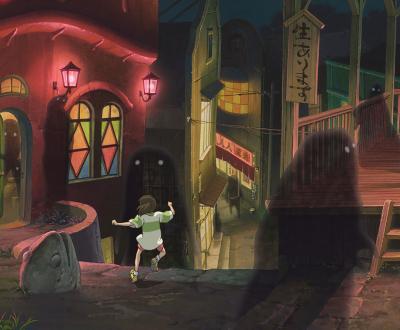Japanese Animated Movies
Feature-length Animations for Every Kind of Public
Even though the debuts of Japanese animation date back to thirty years earlier, the first artwork that can be considered a true Japanese animated movie is Momotarô: Sacred Sailors (桃太郎海の神兵). The 74 minutes long movie was directed by Mitsuyo Seo and released in Japan in 1945. Thirteen years later, The Tale of the White Serpent was the first Japanese colored animation movie, directed by Taiji Yabushita for studio Toei Doga.
Since then, and especially in the 1980s, animation movies never ceased to grow in Japan, catering to a diverse audience.
The mainstream production
One of the most famous producers of animated movies is certainly Studio Ghibli which is often described as a Japanese counterpart to Disney studios. Their original stories or stories adapted from novels are generally (not always!) viewable by all the family, such as My Neighbor Totoro, but they can explore more difficult subjects, such as the history of Japan, with the Grave of the Fireflies for example.
Since the 2000s, a new generation of directors emerged, including Mamoru Hosoda (Wolf Children, The Boy and the Beast, Mirai) and Makoto Shinkai (Your Name, Weathering with you) who created animated feature films for a large audience, internationally praised and who even succeeded to please the most reluctant toward Japanese animation.
Animation movies for an "underground" audience
In the meantime, a large part of animated feature films are also targeting a more restricted audience, mainly adults who are interested in edgy artworks related to thriller or science fiction for example. Satoshi Kon (Perfect Blue), or Mamoru Oshii (Ghost in the shell)’s movies are among the most famous, even for an unaccustomed public.
Animated movies from popular licenses
But many other animation movies are blockbusters featuring popular licenses and attracting millions of spectators. They are theater adaptations of manga, anime or video games, with original stories or the recounting of one of these works’ meaningful story arc.
Some licenses have a movie released almost each year, such as:
- One Piece,
- Naruto,
- Detective Conan (Case Closed), etc.
The movie Kimetsu no Yaiba: Mugen Ressha-hen ("Demon slayer: Infinity train") released in October 2020 even broke Japanese box-office records in all categories.
As for Kanpai, we also try to promote movies that benefit from less marketing and also have an interest in the Japanese animated feature film history.

